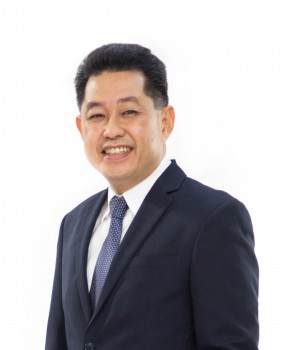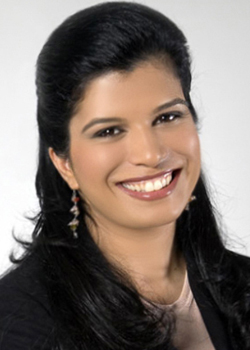
HRH Princess Sumaya bint El Hassan is the President of the Royal Scientific Society (RSS) and the Chair of the Board of Trustees of Princess Sumaya University for Technology (PSUT).
Through her portfolio of initiatives, Princess Sumaya is actively involved in institutional building to support the development of Jordan’s greatest source of wealth, its human capital, and supporting the use of science for peace and prosperity across Jordan and the wider region. Building on their long history and tradition of achievement, HRH Princess Sumaya began working on transforming the Royal Scientific Society, the Princess Sumaya University for Technology and the Higher Council for Science and Technology, and the Queen Rania Center for Entrepreneurship into the ‘El Hassan Science City’ (EHSC), Jordan’s first science park. Her Royal Highness continues the tradition of institutional building started by her father in order to place science and technology in the service of humanity under the motto of “Science for Peace”.
Princess Sumaya is an avid archaeologist and follows, on behalf of her father HRH Prince El Hassan, and in her own right, the work of the British Institute in Amman for Archaeological Research and the Council for British Research in the Levant.
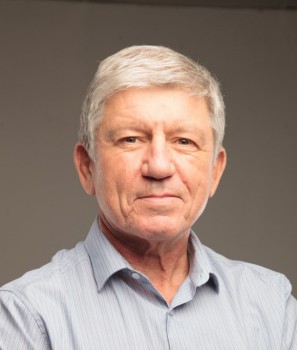
Kevin Marsh is a Professor of Tropical Medicine at the Nuffield Department of Medicine. He has a broad research interest in child health in the tropics, with a particular focus in the immune epidemiology of malaria. From 1989 to 2014 he directed the KEMRI Wellcome Programme in Kenya.
Professor Marsh has furthermore taken a particular interest in the development of Science in Africa. He is currently seconded for 50% of his time as senior adviser to the African Academy of Sciences. He is chair of the WHO Malaria policy advisory committee (MPAC) and a member of many global health advisory groups.
Image: © AAS 2015
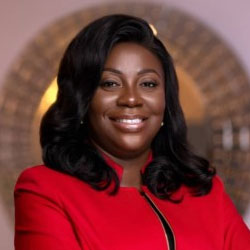
Patricia Obo-Nai is the first Ghanaian female CEO of Vodafone Ghana. Prior to her appointment, she served in other directorship roles, including Chief Technology Director. She has 22 years of experience in Information Technology and Telecommunications, and is a member of the Ghana Institution of Engineers and of the Executive Women Network. Mrs Obo-Nai has received several awards, including the Best Female Technologist Award at the annual Ghana Telecom Awards in June 2012, and was selected as one of the 100 most inspiring women leaders at Vodafone in the year 2018.
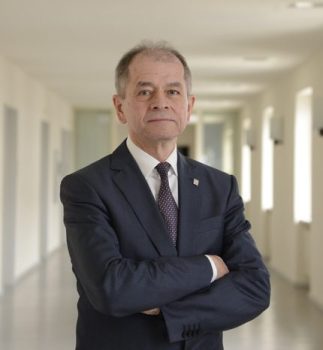
Antonio Loprieno is a Swiss Italian Egyptologist and Professor of History of Institutions at the University of Basel. From 2005 to 2015, he was rector of the University of Basel and during that time also president of the Rectors’ Conference of the Swiss Universities. From 2018 to 2024, he was president of ALLEA, the European Federation of Academies of Sciences and Humanities, and of the Swiss Academies of Arts and Sciences. In his tenure at ALLEA he spearheaded the cooperation with Global Young Academy and generally opened up the network to cooperation with young academies. Antonio joined the GYA Advisory Board in Summer 2025.
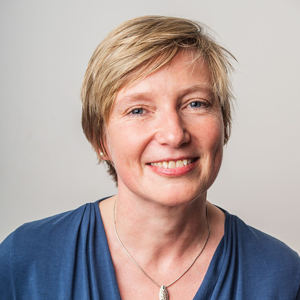
Véronique Kiermer joined the GYA Advisory Board in Summer 2025. Véronique is the Chief Scientific Officer of the non-profit research publisher PLOS (Public Library of Science). She is closely linked to the aims of GYA through her vision for global, equitable open science. She has a PhD in molecular biology from the Université Libre de Bruxelles, Belgium and was a postdoc at the Gladstone Institutes, University of California, San Francisco. She worked in biotechnology R&D for gene therapy projects. In moving into publishing, she became the founding chief editor of Nature Methods, then the Executive Editor for the Nature portfolio. She’s an alumnus of the ORCID Board and beyond other roles a member of the US National Academy of Sciences Strategic Council for Research Excellence, Integrity, and Trust. In December 2023, PLOS and the GYA have announced a Memorandum of Understanding (MoU) establishing cooperation between the two organizations.
Connie Nshemereirwe is an independent science and policy facilitator, and acts at the science-policy interface as a trainer, writer and speaker. She is on the steering committee of the Africa Science Leadership Programme (ASLP) at the University of Pretoria, a programme which was originally created by founding members of the GYA. She also works with the Partnership for African Social Governance (PASGR) in Nairobi, Kenya. Her undergraduate studies were in Civil Engineering, but in later years she made the shift to Education by completing a master’s degree in the design of education and training systems at the University of Twente in 2004, later followed by a PhD in Educational Measurement at the same University in 2014. Connie was a member of GYA’s Executive Committee for the 2017/18 term and served two years as a Co-Chair in 2018 to 2020. She is the first former GYA member to join the Advisory Board of the organisation in summer 2025.
Bruce Alberts, a prominent biochemist with a strong commitment to the improvement of science and education, was awarded the National Medal of Science by President Barack Obama in 2014.
He served as Editor-in-Chief of Science (2009-2013) and as one of the first three United States Science Envoys (2009-2011). Now he is the Chancellor’s Leadership Chair in Biochemistry and Biophysics for Science and Education at the University of California, San Francisco, to which he returned after serving two six-year terms as the president of the National Academy of Sciences.
Advisory Board member until 2018.
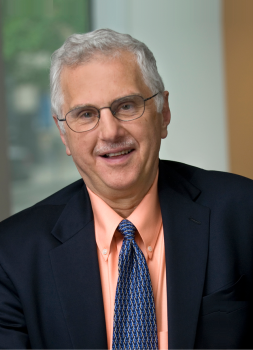
Science manager and historian, Ulrike Albrecht is a member of the Scientific Advisory Board of the University of Heidelberg, Germany, and the former head of the Department for Strategic Planning and External Relations at the Alexander von Humboldt Foundation, Bonn, Germany. She earned graduate degrees in History and English and a PhD in History from the University of Göttingen. Since July 2001, she has been the head of the Department for Strategic Planning and External Relations at the Alexander von Humboldt Foundation. As such, she is also in charge of public relations, cooperation with national and international funding agencies and research organisations. Dr Albrecht is the vice chair of the American Friends of the Alexander von Humboldt Foundation and used to be the chair of the Board of Trustees of the University of Heidelberg. In 2017 she joined the Council of the Leibniz University in Hanover.
Advisory Board member until 2025.
Image: @Humbolt Foundation / David Ausserhofer
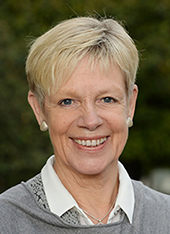
Howard Alper is a distinguished University Professor at the University of Ottawa. The basic research Alper has been pursuing encompasses organic and inorganic chemistry, with potential applications in the pharmaceutical, petrochemical and commodity chemical industries.
He has served as Chair of the Government of Canada’s Science, Technology and Innovation Council, as Chair of the Board of Governors of the Council of Canadian Academies, on the Science Advisory Committee of the WEF and was IAP Co-Chair (2007-2013).
Advisory Board member until 2018.
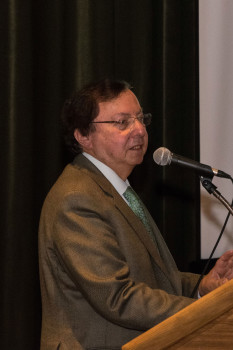
Luiz Davidovich is Professor Emeritus of Physics at the Federal University of Rio de Janeiro (UFRJ). He received his PhD at the University of Rochester in 1976, and has since worked in quantum optics and quantum information. His major contributions are in the fields of decoherence, entanglement, laser theory and quantum metrology. He has analysed in detail the role of the environment in the dynamics of quantum coherence and quantum entanglement, and also in quantum metrology, contributing with theoretical developments and proposals for experiments, which have been performed in Europe and by his own group in Brazil. Luiz is a former President of the Brazilian Academy of Sciences (2016-2022) and was the is Secretary-General of TWAS until 2022. He also acted as Secretary-General of the 4th Brazilian National Conference on Science, Technology and Innovation for a Sustainable Development. He is a foreign associate to the National Academy of Sciences of the United States of America and a fellow of the Optical Society of America and of the American Physical Society.
Advisory Board member until 2025
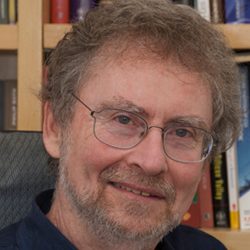
Advisory Board member until 2018.
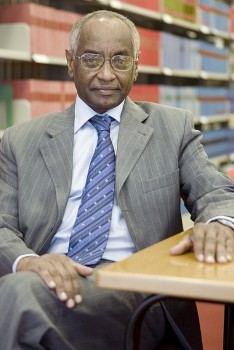
Yuko Harayama is Co-Chair of the Board of Directors of the Japanese Association for the Advancement of Science (JAAS), and a former Executive Member of the Council for Science, Technology and Innovation (CSTI) at the Cabinet Office.
Prior to joining the CSTI, she spent two years at the OECD as the Deputy Director of the Directorate for Science, Technology and Industry (STI), and ten years at the Graduate School of Engineering of Tohoku University as a Professor of Science and Technology Policy.
Advisory Board member until 2025.
Image: © WIPO 2014
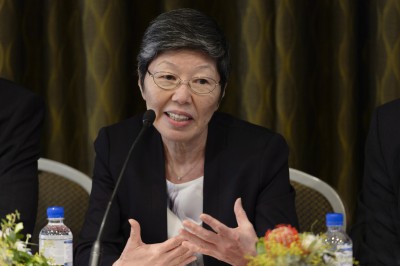
Maria Ivanova is Associate Professor of Global Governance and Director of the Center for Governance and Sustainability at the John W. McCormack Graduate School of Policy & Global Studies, University of Massachusetts Boston. Professor Ivanova is a Senior Policy Advisor and was a Partner of Ecologic Institute Berlin. Her work focuses on global environmental governance, the performance of international organisations, in particular the UN Environment Programme (UNEP) and the role of the United States in international environmental affairs.
She was a member of the Scientific Advisory Board of UN Secretary-General Ban Ki-Moon and a Board member of the UN University Institute for the Advanced Study of Sustainability (UNU-IAS). In 2015, she was awarded an Andrew Carnegie fellowship.
Advisory Board member until 2019.
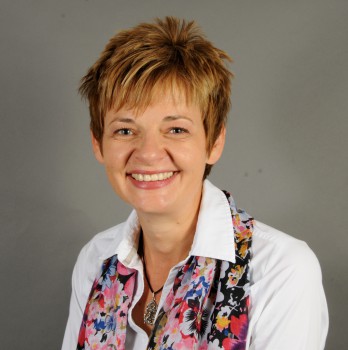
Sweden-born Linda Nordling, who started her journey as a journalist in the UK before moving to South Africa, specialises in African science policy, education and development. She was the founding editor of Research Africa and writes for SciDev.Net, Nature, The Times Higher Education, The Guardian and many others. She also functions as an adviser in science communication (mainly Africa, and African-related health topics).
Advisory Board member until 2025
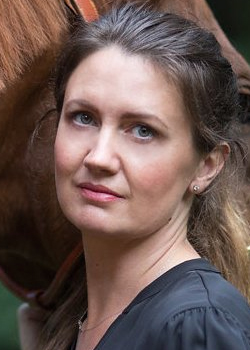
Advisory Board member until 2018.
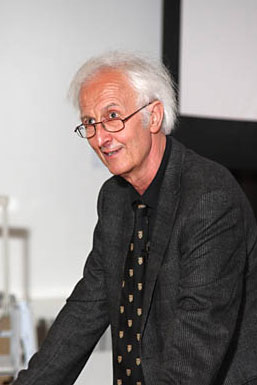
Narong Sirilertworakul is the President of the National Science and Technology Development Agency in Thailand. For the last twenty-five years, Dr Sirilertworakul has been engaged in driving science and technology for a better future of Thailand.
In doing so, he has been and is key in supporting GYA’s activities in Thailand and Southeast Asia. He obtained his Ph.D. in manufacturing engineering from the University of Birmingham, UK and completed a Harvard Business School’s Advanced Management Program and a Director Certification Program from the Thai Institute of Directors.
Advisory Board member until 2022.
